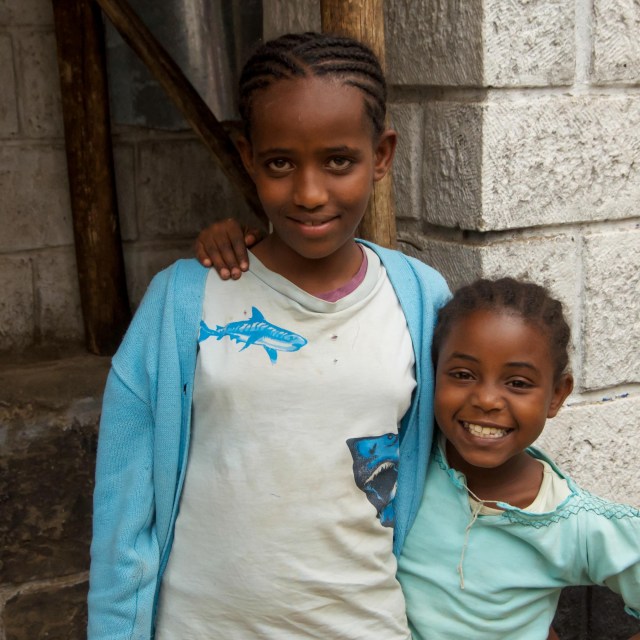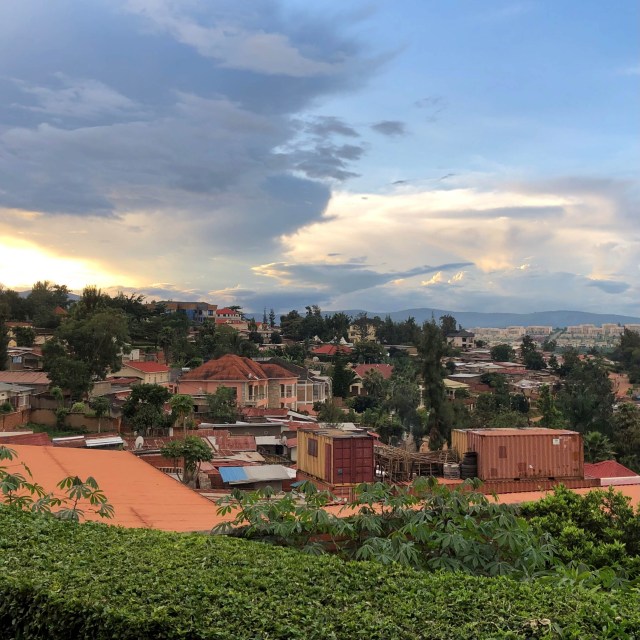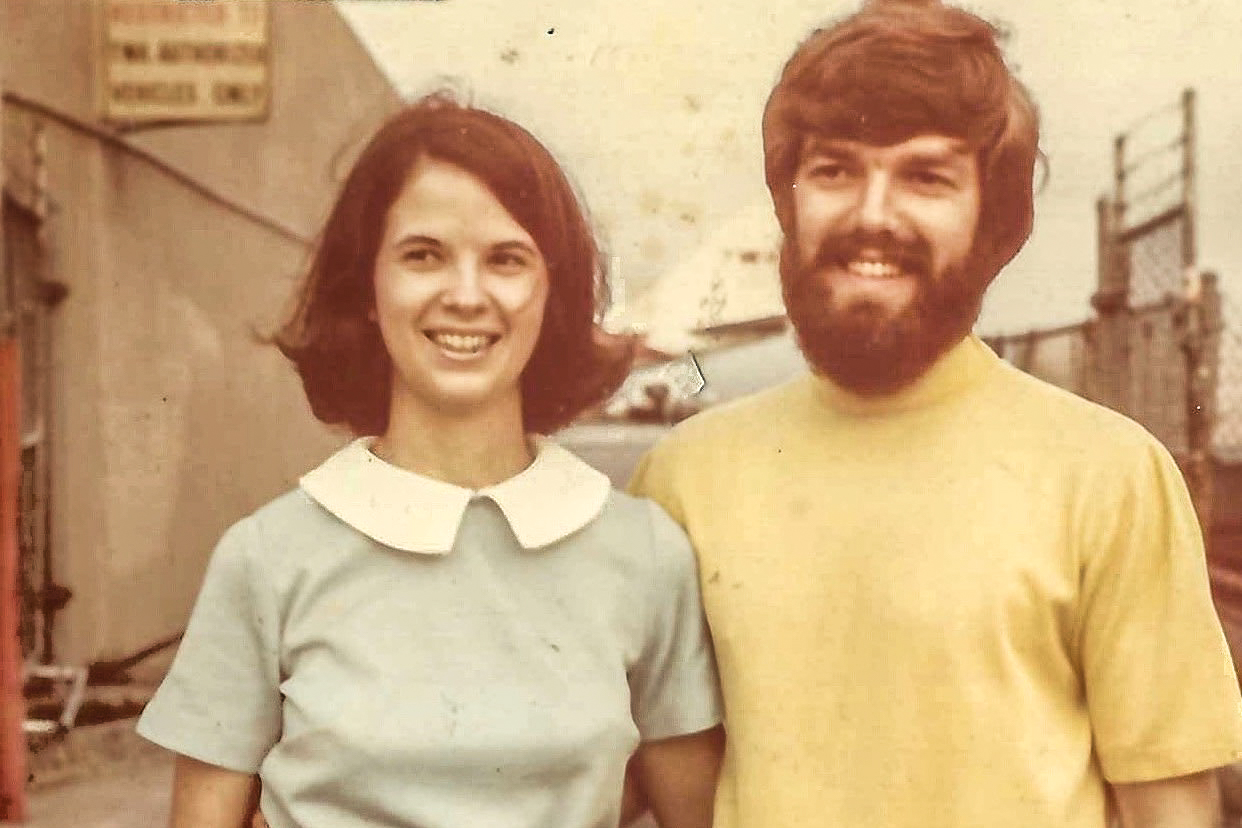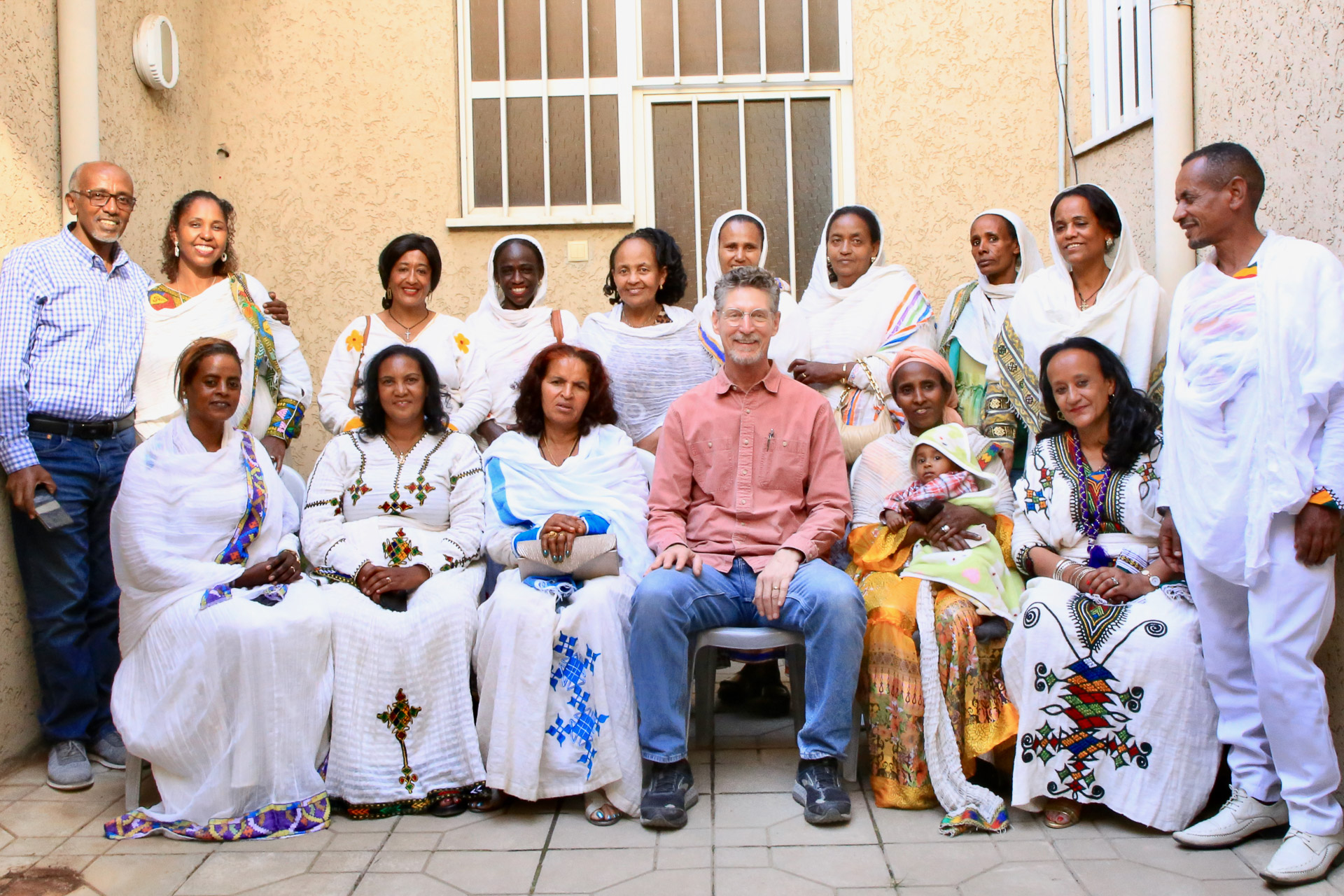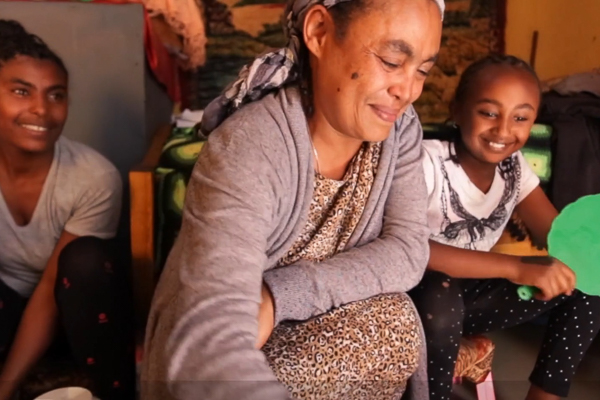Ethiopia ACT
Twenty Years of Impact

“Christianity served as a revitalization movement that arose in response to the misery, chaos, fear, and brutality of life in the urban Greco-Roman world. … And to cities faced with epidemics, fires, and earthquakes, Christianity offered effective nursing services.”
— Rodney Stark, Rise of Christianity, page 161
Twenty years ago, Addis Ababa, Ethiopia, looked a lot like these harsh, chaotic Greco-Roman cities that Rodney Stark described in his book, “Rise of Christianity.” HIV/AIDS ravaged Africa, but the Church largely turned its back. Stigma and fear kept Christians from caring for the sick and dying, focusing their efforts on prevention, which proved largely ineffective in slowing the epidemic.
In contrast, Mission to the World, partnering with SIM Ethiopia, launched Ethiopia ACT to love people dying of AIDS, providing palliative care and a clear gospel message in word and action. My wife, Bev, and I were able to care for families impacted by AIDS. Even before HIV treatment started, the Ethiopia ACT team loved and cared for people dying of AIDS, sitting on their beds, holding their hands, praying for them, and organizing funerals and care for the children left behind when they passed away.
The people we cared for usually realized they were dying and that doing good works to tip the scale in their favor with God would not happen. Sitting with them, holding their hands, praying, and loving the dying provided us daily opportunities to share the gospel of hope in Christ and His work for us. Ethiopia ACT partnered with local churches to connect people with a body of believers and encouraged these churches to love and serve their communities.
HIV/AIDS Treatment Shifts Strategy
When Ethiopia approved antiretroviral drugs to treat HIV/AIDS in 2004, Ethiopia ACT pivoted from palliative care to treatment support. We launched a program to treat the HIV-positive children in the project, starting with three children aged 9, 8, and 4. It was the first pediatric HIV treatment program in Ethiopia. Today, 18 years later, all three are healthy adults. One has her master’s degree, another drives a taxi, and the youngest is finishing his university degree. All are healthy, still on treatment, and helping support their HIV-positive mothers.
Twenty years ago, responding to the HIV/AIDS crisis in Africa, President Bush launched the President’s Emergency Plan for AIDS Relief (PEPFAR), providing free antiretroviral treatment. PEPFAR is widely considered one of the most effective U.S. government programs ever implemented. In 2005 free treatment came to Ethiopia. Instead of caring for people dying of AIDS, we played a critical role in helping people start and stay on treatment. Digital watches with alarms and pillboxes kept patients adherent, and on Monday afternoons patients met with Ethiopia ACT staff to learn about the drugs, their possible side effects, ask questions, and sort their medicines into pillboxes.
When the main government hospital, Black Lion, realized they had a group of healthier patients who understood their treatment, wore black Timex Expedition watches, and carried large, white pillboxes, they asked us to partner with them and manage treatment support. As treatment expanded, the World Health Organization looked for partners to pilot and implement treatment support materials and strategies. WHO needed healthy, HIV-positive patients to serve as peer counselors and Ethiopia ACT was the organization in Ethiopia able to provide these workers. This led to a partnership between the Ethiopian health system, PEPFAR, WHO, and Ethiopia ACT to develop and implement a treatment support program for the country.
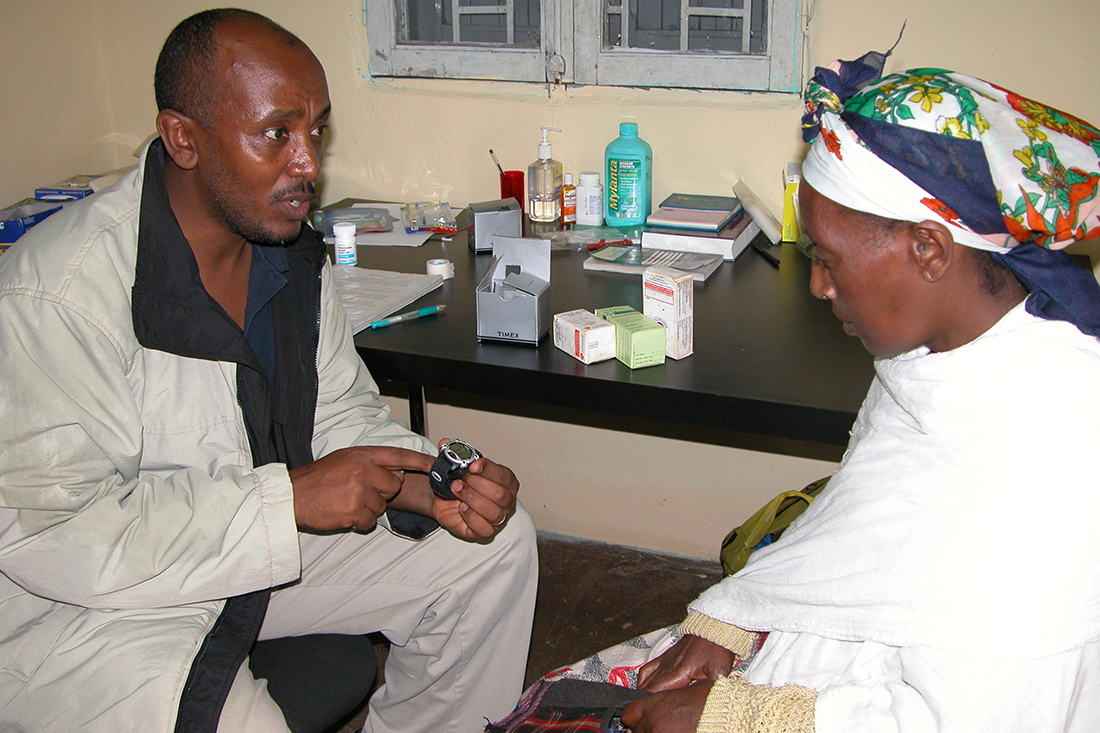
We designed the protocol and established treatment support programs in 13 treatment centers, supporting 15,000 patients a year for three years. Besides preventing thousands of deaths, good treatment support meant fewer AIDS orphans and slowed the spread of the epidemic. People on treatment who take their drugs correctly and have undetectable virus in their blood are unlikely to pass the virus to others.
Self-Sufficiency Through Education
With people no longer dying, the next step was to help them live. HIV-positive people needed to become self-supporting. We experimented with different strategies, but two keys turned out to be savings accounts, which made people feel part of the real economic world, and learning skills for a job or to open a small business.
Educating children also turned out to be important for self-sufficiency. We require all children in the project to attend school and ACT provides whatever support they need, such as tuition, uniforms, shoes, and tutoring. More than 90 children have finished university or trade school and now help support their families. Of the more than 2,200 families that have been part of Ethiopia ACT, 80% now support themselves without any outside help.
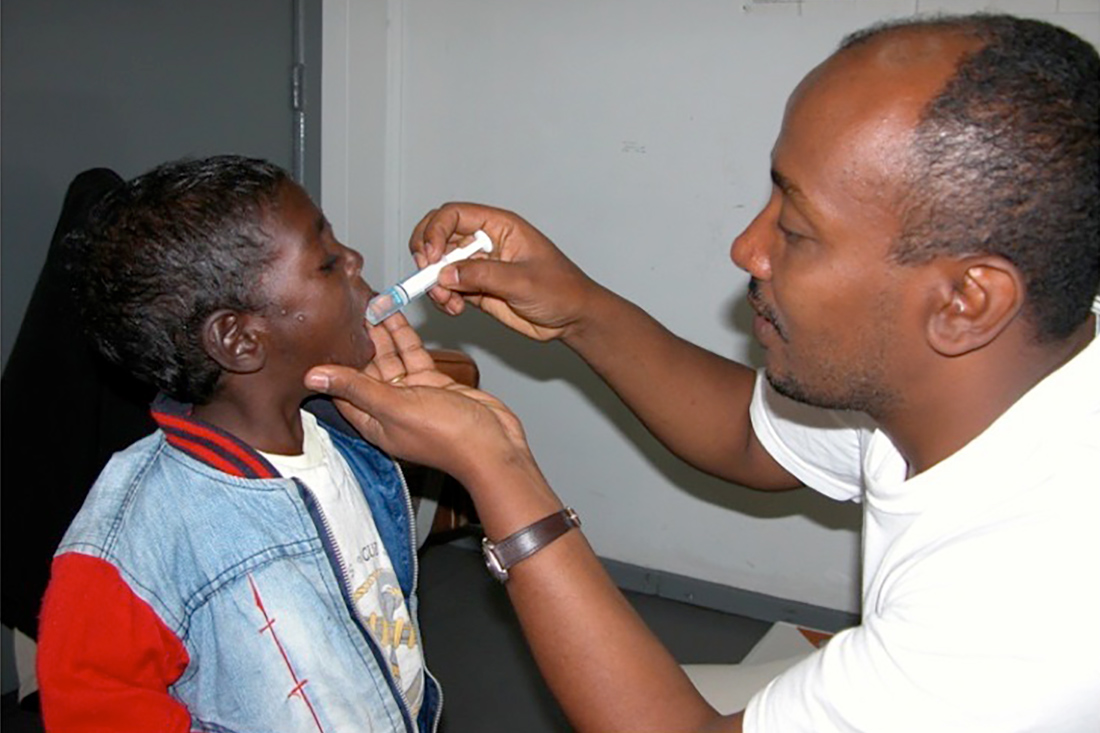
A Church Plant Launches a New Denomination
In 2012, MTW missionaries Jason and Liz Polk joined the Ethiopia ACT team in Addis Ababa to lead spiritual ministry and church planting. Building on the foundation of relationships and reputation of Ethiopia ACT, they quickly planted one church and over the next 10 years developed a new Reformed denomination, Yemesihu Tsega (Grace of the Messiah) Presbyterian Church, with a core team of six overseeing elders and 11 church planting apprentices. They have established seven church planting sites and one more is in process. Many of these churches work closely with Ethiopia ACT but the work has expanded beyond the communities and people Ethiopia ACT serves.
Key factors in Ethiopia ACT’s impact are our talented and dedicated staff, a commitment to generosity, and a dedication to measuring real impact. Our key leaders have worked together for almost 20 years. Ethiopia ACT tailors its support and care to the needs of each family and does its best to meet those needs. We also set goals and metrics for its impact, measuring and adjusting as needed. Digital tools help us track progress, including a database covering metrics like mortality and morbidity, a geolocation app called What3Words that allows the staff to locate slum homes in dense urban areas, and data capture tools that help staff track and respond to beneficiary needs. If a family needs medical care, emotional support, or spiritual care, a staff member is automatically notified through the system.
Because of our expertise in data collection and strong community ties, PEPFAR, through the U.S. embassy in Addis Ababa, recently selected Ethiopia ACT to conduct a survey of HIV services in Addis Ababa.
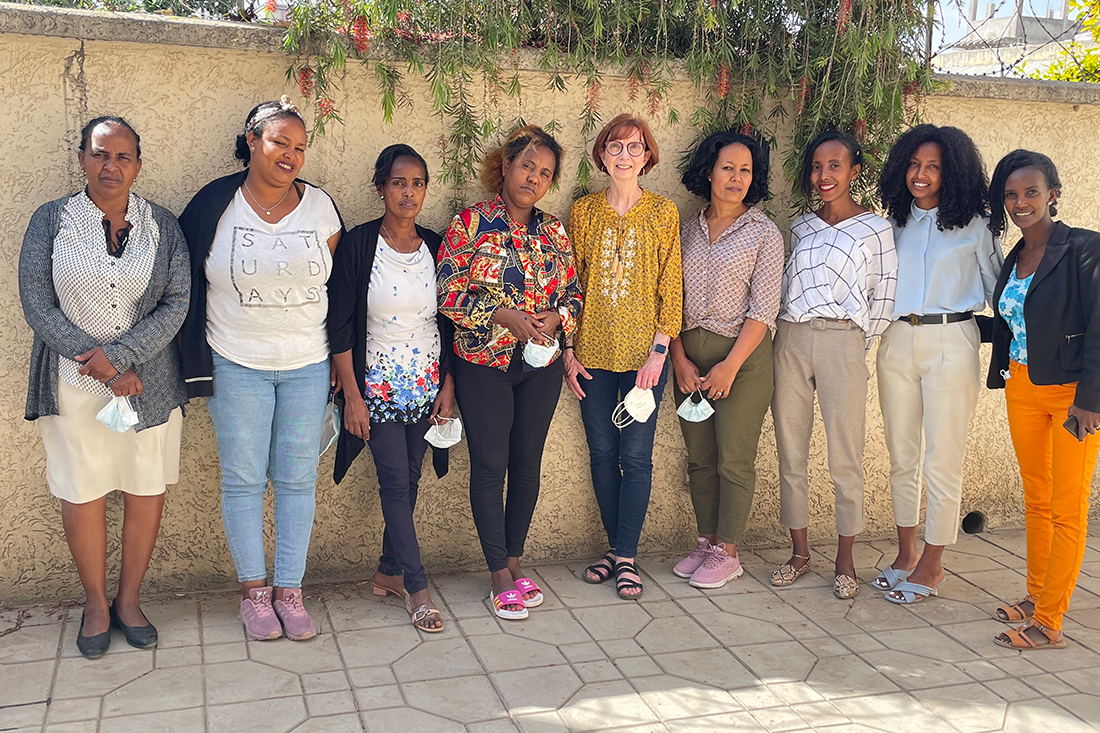
Bev and I started Ethiopia ACT 20 years ago as an HIV/AIDS project, but today the team cares for families impacted by a variety of major illnesses and extreme poverty. We constantly work to identify needs and find creative and effective ways to respond. New strategies and interventions to keep more girls in school, strengthen public health, improve housing, and respond to disasters like cholera, are part of Ethiopia ACT’s DNA. Ethiopia ACT is frequently one of the first organizations the government approaches for help. During a recent government evaluation, officials described Ethiopia ACT as the best of the thousands of organizations they review.
Kebebush, an HIV-positive single mom, joined Ethiopia ACT in 2007 and heard the gospel for the first time from a staff member. Since then she has followed Jesus, serving in her local church as an usher and leading a prayer team. She earned her diploma in accounting and works in a government health center as an information and documentation officer. Kebebush has stayed on her HIV treatment and is healthy and caring for her family.
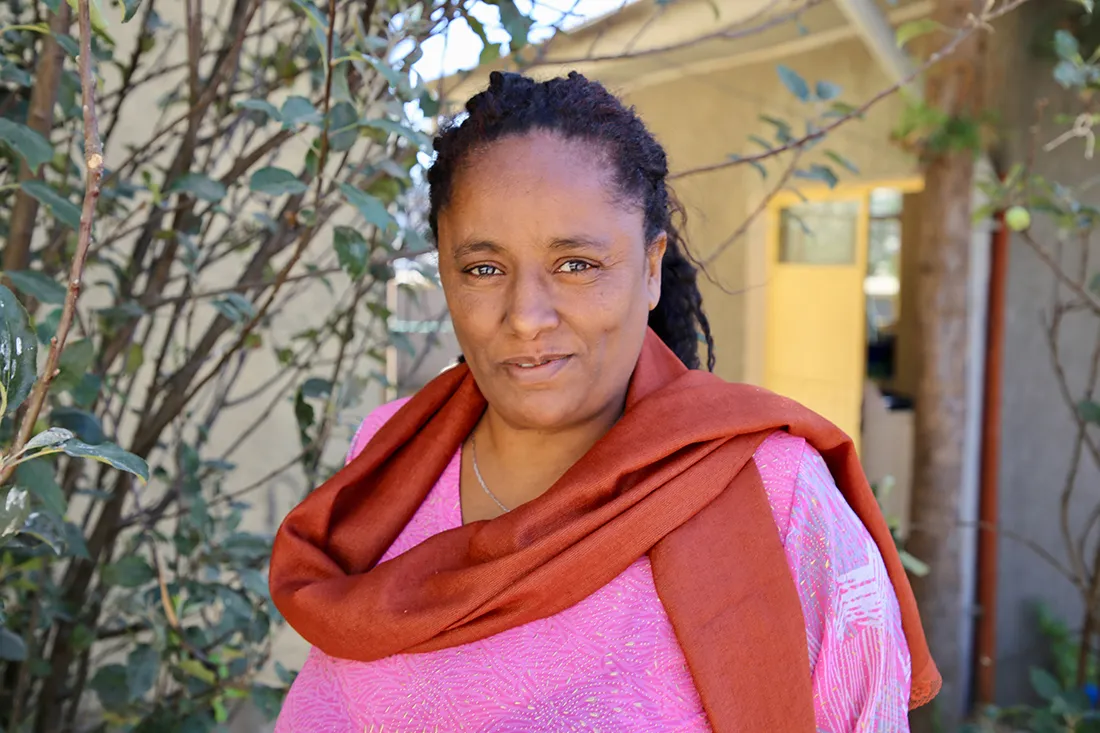
Kebebush’s redemptive story is one of many we could tell. The MTW/Ethiopia ACT team faithfully lives out the gospel in Addis Ababa. Churches are being planted and strengthened. Widows and orphans, the sick and neglected, are loved and cared for. Families are restored to health and dignity and communities transformed.

